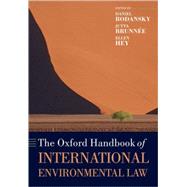
| Introduction | |
| General Issues | |
| Evolution of International Environmental Law | |
| Paradigms and Discourses | |
| General Norms vs. Specialized Regimes | |
| Subsidiarity/Federalism | |
| Formality vs. Informality | |
| Intersection with Other Areas of International Law | |
| Instrument Choice | |
| Science and Technology | |
| Analytical Tools and Perspectives | |
| International Relations | |
| Environmental Economics | |
| Critical Approaches | |
| Environmental Ethics | |
| Basic Issues Areas | |
| Atmosphere and Outer Space | |
| Oceans and Freshwater Resources | |
| Biological Resources | |
| Hazardous Substances and Activities | |
| Normative Development | |
| Types of Standards: Principles, Objectives and Commitments | |
| Pierre-Marie Dupuy: Formation of Customary International Law and General Principles | |
| Treaty-making and Evolution | |
| Normative Development by Public International Forums | |
| Private and Quasi-Private Standard-Setting | |
| Key Concepts | |
| Transboundary Impacts | |
| Common Areas/Common Heritage/Common Concern | |
| Ecosystems | |
| Precaution | |
| Sustainable Development | |
| Equity | |
| Environmental Rights | |
| Public Participation | |
| Legitimacy | |
| Actors and Institutions | |
| Changing Role of the State | |
| NGOs and Civil Society | |
| Epistemic Communities | |
| Business | |
| Indigenous Peoples | |
| Regional Economic Integration Organizations | |
| Treaty Bodies | |
| Implementation and Enforcement | |
| Compliance Theory | |
| National Implementation | |
| Financial and Technological Transfers | |
| Monitoring and Verification | |
| Compliance Procedures | |
| International Responsibility and Liability | |
| International Dispute Settlement | |
| Conclusions | |
| Table of Contents provided by Publisher. All Rights Reserved. |
The New copy of this book will include any supplemental materials advertised. Please check the title of the book to determine if it should include any access cards, study guides, lab manuals, CDs, etc.
The Used, Rental and eBook copies of this book are not guaranteed to include any supplemental materials. Typically, only the book itself is included. This is true even if the title states it includes any access cards, study guides, lab manuals, CDs, etc.